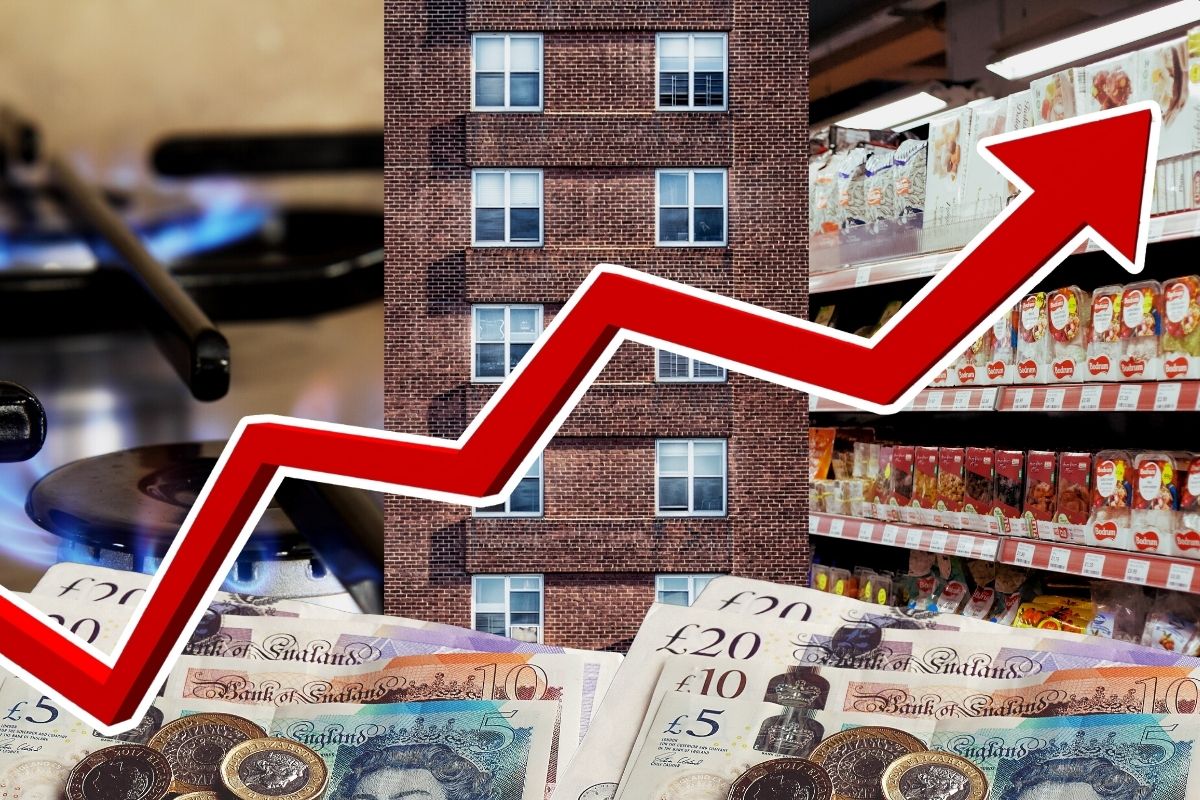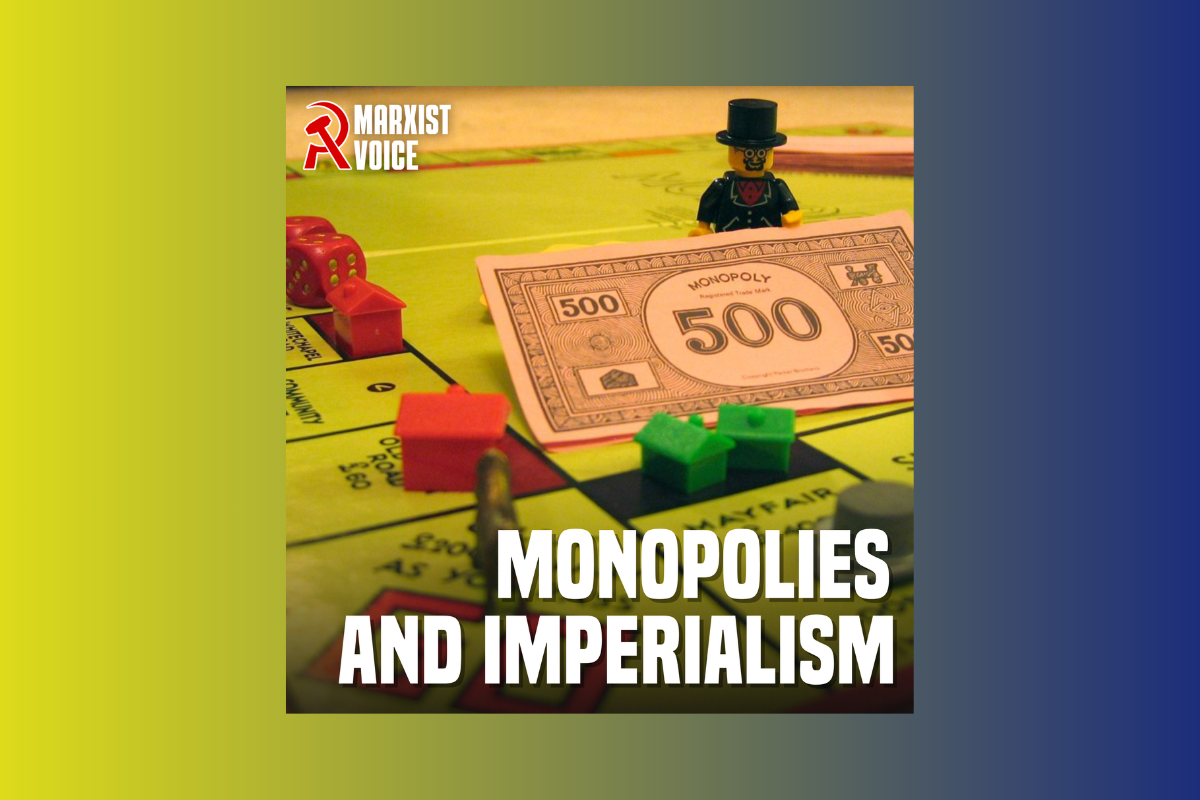Earlier this year, it was announced by the Office of National Statistics (ONS) that inflation had risen from November to December, with the Consumer Prices Index going up from 3.3% to 3.7% and the Retail Prices Index (PRI) – which includes housing costs such as mortgage interest payments and council tax – rising from 4.7% to 4.8%. Inflation was persistently high throughout 2010, with an average RPI of 4.6% – the highest since 1991.
The CPI has been above 3% for the last twelve months, a whole percentage point above the Bank of England’s 2% target, prompting Mervyn King, the governor of the Bank of England, to write a total of four letters to George Osborne, the Chancellor of the Exchequer, explaining the causes for such consistently high inflation.
With many public sector workers facing a wage freeze for the next two years and with an average growth in earnings of just 2.1% overall, it is clear that working class families are being hit extremely hard as they see wage reductions in real terms due to inflation. With the increase in VAT from 17.5% to 20%, it is predicted that inflation could rise to over 4%, thus exacerbating the situation even further.
A number of strikes have already broken out in the private sector over the attempts of the bosses to impose wage freezes, such as at the Perkins engine factory in Stafford and the GlaxoSmithKline Ribena factory in Gloucestershire. A full time official for the GMB trade union in Stafford said that, “In 2011- 2012, I think we will see unrest…People are tired of the constant pressure on wages, pensions and conditions”. Jason Piers, a worker from London commenting on the BBC website, said that, “The general public have paid through the nose because of the banks’ failures. Now they are going to suffer due to the restrictions in place on the public purse. They have had a VAT increase, are paying almost 25% more for fuel this year than last and now they want us to pay more for our mortgages. It’s the banks and financial institutions who are profiteering from speculators on the oil, food and money markets. They should be hit first and not the general public”. (BBC website – 18th January 2011 http://www.bbc.co.uk/news/12211968)
Savings
It is not only workers who will suffer. With low interest rates, inflation has the effect of reducing the value of savings. This particularly affects those who live off their savings, such as pensioners. Dorothy Luxford, a disabled pensioner from Trowbridge, said that, “As pensioners on a fixed income and not in receipt of any benefits then of course we are not coping well…The cost of food has rocketed and I defy any supermarket to say different… It does not take a scientist to work out that we owe nothing but are expected to pay to clean up the mess left by the bankers.” In addition, those receiving jobseeker’s allowance, income support, housing benefit, or the disability living allowance are already facing cuts to their benefits as the government switches from using the RPI to the CPI (which is lower) to calculate the annual increase for benefits. This will also affect public sector pensions.
The rich, however, are laughing all the way to the bank: the directors of Britain’s 100 biggest companies enjoyed an average pay rise of 55% during 2010 and over £7bn was paid out in bankers’ bonuses. What’s more, the bosses actually benefit from inflation. Inflation has the effect of devaluing the currency, thus making exports more competitive, which in turn helps exporting businesses make greater profits. However, this competitive advantage is only short term; in the long run, imports become more expensive, thus increasing the cost of production and reducing profits.
Inflation also has another effect: reducing the real value of debt. If inflation is high enough, debt can be inflated away. Along with high economic growth rates, inflation was a large factor in reducing the sovereign debt of Britain after WWII and may be used again to erode away Britain’s current national debt. Of course, ultimately it is still the working class who suffer by seeing the value of their wages decrease in real terms.
Such inflationary tactics are nothing new. Roman emperors were well acquainted with such tactics, and would purposefully debase their currencies by reducing the actual content of gold or silver in coinage in order to reduce sovereign debt. The “quantitative easing” programmes undertaken by Ben Bernanke, the head of the Federal Reserve in the USA, are no different; in November 2010, Bernanke announced his “QE2” plan to buy $600bn worth of US Treasury bonds with newly printed money. Whilst scorning China for refusing to let the Yuan appreciate, the Fed is more than happy to hypocritically let the value of the dollar fall, thus starting a round of currency wars.
Prices
The main causes of the inflation being cited are the increasing prices of food, fuel, and energy. Adverse global weather conditions, such as floods, fires, and droughts, which are becoming more frequent due to climate change, are acknowledged as being to blame for much of the increased prices of food. According to the Food and Agriculture Organisation (FAO) and the Economist Intelligence Unit (EIU), speculators have made matters worse by betting on prices. In addition, many large food exporting countries, such as India, have placed a ban on the exports of many goods in order to ensure that supply can meet domestic demand. Such countries are fearful of seeing a repeat of the riots that occurred in 2008 due to shortages of basic necessities and rising prices. The current revolution in Tunisia was also sparked off by high inflation of food and fuel.
A lack of investment in food production and an increase in demand from emerging economies have also contributed to increasing food prices. In Venezuela, hoarding of food by private food monopolies has driven up inflation, thus hurting ordinary families. Such tactics are an attempt by the capitalists to sabotage the economy and thus destabilise Hugo Chavez’s popularity amongst the masses. Chavez has responded by expropriating new areas of the food production and distribution system.
The increasing price of fuel and energy is due to similar factors to food: an increase in demand from emerging economies (especially China); a lack of investment from oil companies; limited investment in alternative sources of energy; disasters such as the Deepwater Horizon explosion, along with speculation. The price of oil now stands at almost US$100 per barrel, up from $70 in May 2010. The increasing price of oil and energy feeds into the prices of other commodities by increasing the cost of production and transportation, thus intensifying the suffering for workers, especially those who rely on low fuel costs for driving.
Supply and demand
Marx long ago explained the relationship between prices, wages and profit, and thus explained the mechanisms behind inflation. Despite popular myth, Marx did not deny the role of supply and demand in determining the price of commodities; however, he explained that changes in supply and demand only resulted in the fluctuation of the price around an equilibrium. This equilibrium is the value of a commodity, determined by the socially necessary labour time crystallised within the commodity, including the “living” labour of the worker and the “dead” labour congealed within the raw materials and tools that were required to make the commodity. If the price of a commodity rises above its value, then investors will throw capital into that field of industry until the equilibrium is restored. Similarly, if price drops below value, capital will be removed and diverted to another sector, thus reducing the supply of that commodity and increasing its price. This relationship between price and value is also acknowledged by bourgeois economists. For example, The Economist says, in relation to the recent increase in the price of commodities, that, “One would expect commodities to be anchored by the cost of production. A market price well above that level will cause new supply to be brought on stream; too low a price will cause mines to be mothballed or arable land to be switched to other crops.” (The Economist – 13th January 2011)
In addition, Marx pointed out that workers also possessed a very special kind of commodity – their labour power, i.e. their ability to work for a certain period of time, and that this labour power also has a value, which is also determined by the socially necessary labour time needed to produce that commodity. In other words, the value of labour power is determined by the value of the food, clothing, housing, healthcare, education, etc. that are needed to maintain the average worker and his/her family. In turn, wages are the price of labour power, determined by the overall supply and demand of labour power available. History shows this analysis to be correct – workers have generally been able to obtain greater wages when the economy is growing and demand for labour is high. Wages are also determined, however, by the balance of forces in the class struggle. When workers are organised and unionised, higher wages can be won, but only at the expense of the profits of the capitalist class.
It has become a popular myth that unionised workers are to blame for causing inflation by demanding (and winning) higher wages. In fact, it is the other way around. Workers are generally fighting to increase their wages to catch up with inflation. Ted Grant explained this back in 1971 when responding to the slanders of the Tory government and bourgeois media:
“What causes price increases? If the capitalists could arbitrarily raise prices they would not wait for wages to rise. They are interested in gaining the maximum profits. What stops them is competition, especially under modern conditions, nationally and internationally. In fact in general it is wages which lag behind prices and not vice-versa.
If the capitalists could raise prices at their whim, why do they face the prospect of bitter strikes, with consequent loss of production and profits rather than concede the wage demands of the workers? If it was simply a question of passing on wage increases that would be the obvious way to solve the problem. But in fact the profit of the capitalist class is only the unpaid labour of the working class. Consequently an increase of wages for the workers, other things being equal, means a fall in the profit of the capitalists. Hence the cries of woe from the paid hacks of capitalism in the mass media.” (Ted Grant – The Truth Behind Inflation, http://www.marxist.com/grant-truth-behind-inflation.htm)
Profit
Ted Grant, in the quote above, explains that profit is only derived by paying workers less in wages than the value of the commodities that they produce. Profit cannot be derived by simply “buying cheap and selling dear”, otherwise for every seller who makes a profit there will be a buyer who gets ripped off; since people are both buyers and sellers in the marketplace, what is gained in one transaction will be lost in the next. Marx explains this in Capital:
“Suppose then, that by some inexplicable privilege, the seller is enabled to sell his commodities above their value, what is worth 100 for 110, in which case the price is nominally raised 10%. The seller therefore pockets a surplus-value of 10. But after he has sold he becomes a buyer. A third owner of commodities comes to him now as seller, who in this capacity also enjoys the privilege of selling his commodities 10% too dear. Our friend gained 10 as a seller only to lose it again as a buyer. The net result is that all owners of commodities sell their goods to one another at 10% above their value, which comes precisely to the same as if they sold them at their true value. Such a general and nominal rise of prices has the same effect as if the values had been expressed in weight of silver instead of in weight of gold. The nominal prices of commodities would rise, but the real relation between their values would remain unchanged.” (Karl Marx – Capital, Volume 1, Chapter 5)
This explains why inflationary measures and devaluations of currency solve nothing. Devaluing a currency in order to boost exports will eventually result in an increased price of imports, thus increasing the cost of production for the original exporter and reducing their competitive advantage.
Commodities
Marx also explained in Capital that the amount of money in circulation was not arbitrary but was determined by the sum of the prices (which equals the sum of the values) of the commodities in the system:
“The quantity of the medium of circulation is determined by the sum of the prices that have to be realised…If the mass of commodities remain constant, the quantity of circulating money varies with the fluctuations in the prices of those commodities. It increases and diminishes because the sum of the prices increases or diminishes in consequence of the change of price. To produce this effect, it is by no means requisite that the prices of all commodities should rise or fall simultaneously. A rise or a fall in the prices of a number of leading articles, is sufficient in the one case to increase, in the other to diminish, the sum of the prices of all commodities, and, therefore, to put more or less money in circulation. Whether the change in the price correspond to an actual change of value in the commodities, or whether it be the result of mere fluctuations in market-prices, the effect on the quantity of the medium of circulation remains the same.” (Karl Marx – Capital, Volume 1, Chapter 3)
Creating more money therefore, whether it be by printing paper or debasing coins, does nothing to affect the total wealth in society, but only leads to inflation. Trotsky also explained this in relation to the Russian economy under Stalin:
“In reality, currency inflation, inevitably producing a credit inflation, entails a substitution of fictitious for real magnitudes, and corrodes the planned economy from within. It is needless to say that inflation meant a dreadful tax upon the toiling masses.” (Leon Trotsky – The Revolution Betrayed, Chapter 4)
Recession
At the present time, bourgeois economists assume that the excess capacity created by the recession will be used to increase production and reduce inflation. But this is not happening. Why? The problem is that we are facing a crisis of overproduction. Even if capitalism produced goods to meet peoples’ actual needs rather than, as is the case, to trade and compete in the market for profit, they would still come up against the problem that, in the struggle for surplus value, they deprive workers of the very means to buy the goods they produce. Since workers receive less in wages than the value of the commodities that they produce, they are not able to buy back all these commodities. Without an able buyer, capitalists cannot sell their commodities; profit cannot be realised; production, which under capitalism is only for profit, stops. The capitalists cannot decrease prices or increase wages in order to increase effective demand, otherwise that would cut into profits. The system is at an impasse.
In the final analysis, the problem is the capitalist system itself and its inherent contradiction: the private ownership of the means of production. If the banks and industrial monopolies were nationalised, under the control of workers, trade unions, and elected representatives, then the economy could be planned in the interest of ordinary people, not profit. All the spare capacity in the economy could be utilised to produce a super-abundance of commodities, to improve infrastructure, and to invest in schools, hospitals, and housing.
Inflation is a scourge on the working class. It should be eradicated at the expense of the bankers and bosses, not ordinary people.






